Round The World and other travels
A frequent flyer's collection of trip diaries
June 2015: Worcester and the Malvern Hills
Following on from my day in the Wye Valley, my journey continued northwards through the beautiful Malvern Hills to the city of Worcester.
Ledbury
After briefly repositioning from my overnight stop near Tewkesbury, I resumed my scenic journey at the small market town of Ledbury, on the southwestern edge of the Malvern Hills.
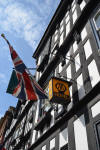 |
 |
 |
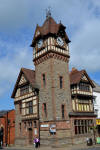 |
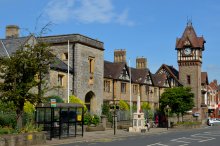 |
 |
 |
Great Malvern
Great Malvern is the historical central area of the town of Malvern in Worcestershire. As is usually the case with former spa resorts, it is a generally attractive place and made a pleasant short stop on my way to Worcester. Its most striking feature is Great Malvern Priory, a large parish church formed from what remains of a former Benedictine monastery.
 |
 |
 |
 |
 |
 |
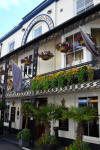 |
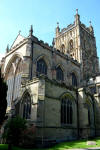 |
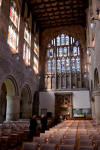 |
 |
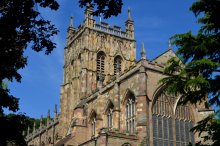 |
|
 |
|||||
Worcester
Worcester is a smallish city of around 100,000 people, located less than forty miles southwest of Birmingham on the River Severn. Worcester is closely associated with one of England's greatest composers (see panel on right) and is home to the well known Worcestershire sauce. Although I found the city in general to be only moderately attractive, I thought that its single greatest asset, the 12th-century cathedral and its precincts in their beautiful riverside setting, was an absolute gem. Worcester Cathedral was formerly a Benedictine priory, undergoing a change of both role and Christian denomination following the English Reformation and Dissolution of the Monasteries. The cathedral library contains a 13th-century copy of the Magna Carta.
 |
 |
 |
 |
 |
 |
 |
 |
 |
 |
 |
 |
 |
 |
 |
 |
 |
 |
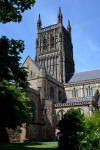 |
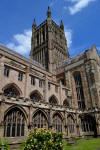 |
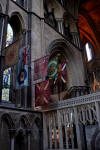 |
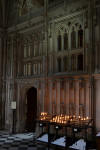 |
 |
 |
 |
 |
||||
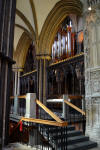 |
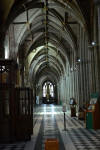 |
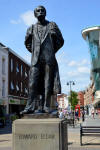 |
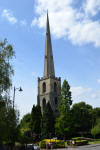 |
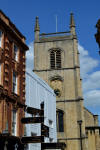 |
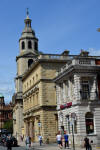 |
Elgar Birthplace Museum
Having already visited Gustav Holst's birthplace in Cheltenham, I took the opportunity to call at the only other composer birthplace museum in England, that of Sir Edward Elgar. The house and the modern Elgar Centre building are located in the small village of Lower Broadheath, just outside Worcester.
Base:
Hilton Puckrup Hall, Tewkesbury
Linked reports from same trip:




